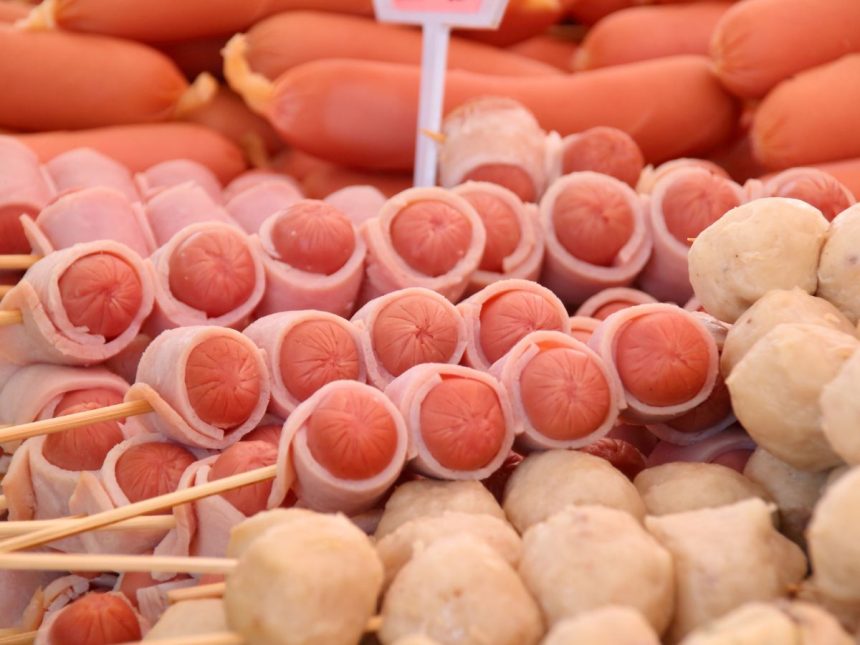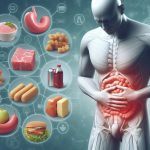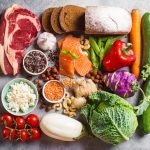Your prostate health is something you shouldn’t overlook. While age and genetics play a role, the foods you eat can either support or harm this vital gland. In this article, we’ll explore 9 foods that may be negatively impacting your prostate and provide insights into making better dietary choices for long-term health.
Understanding the Prostate and Its Importance
The prostate is a small, walnut-shaped gland located just below the bladder. It plays an essential role in male reproductive health, primarily by producing fluid that nourishes and transports sperm.
As men age, the prostate can become a source of concern. Issues like benign prostatic hyperplasia (BPH), prostatitis, and even prostate cancer can arise. These conditions affect many men, especially in their later years.
While age and genetics play a role in prostate health, diet and lifestyle choices are critical factors that can influence the health of this vital gland.
How Diet Can Impact Prostate Health: Foods to Avoid
Processed Red Meat
Processed red meats, such as bacon, sausages, and hot dogs, can harm your prostate in several ways. These meats contain harmful compounds like saturated fats.
While testosterone is crucial for male reproductive health, too much saturated fat can lead to higher estrogen levels.
This hormonal imbalance stresses the prostate, potentially causing enlargement and conditions like benign prostatic hyperplasia (BPH).
Moreover, estrogen at high levels stimulates prostate cells, which may speed up abnormal growth, increasing cancer risk.
Processed meats also often contain nitrates, which convert into carcinogenic nitrosamines during digestion.
Over time, the cumulative exposure to these harmful chemicals makes the prostate more vulnerable to malignancy.
Additionally, advanced glycation end products (AGEs), formed when proteins or fats combine with sugars during high-heat cooking, may contribute to chronic inflammation.
This inflammation stresses the prostate, weakening it and leading to cellular damage.
Dairy Products
Dairy products, including whole milk, cheese, and butter, may negatively impact prostate health. They contain high levels of saturated fats, which can lead to inflammation and tissue weakening.
Over time, this may increase the risk of prostate enlargement.
Excessive calcium intake from dairy can also contribute to prostate cancer risk. High calcium levels suppress the production of calcitriol, a form of vitamin D that regulates prostate cell growth.
Without adequate calcitriol, uncontrolled cell proliferation may lead to cancerous growth.
Additionally, growth hormones naturally present in dairy products, such as insulin-like growth factor (IGF), have been linked to prostate cancer. Elevated levels of IGF promote rapid cell division, increasing cancer risk.
Alcohol
Alcohol impacts the prostate by disrupting hormone balance. It increases estrogen levels while reducing testosterone, which is crucial for prostate health. This hormonal shift may cause the prostate to enlarge over time, contributing to BPH.
Regular alcohol consumption also overwhelms the liver’s detoxification system, leading to toxin accumulation.
Alcohol’s diuretic effect further exacerbates dehydration, irritating the urinary tract and worsening prostate-related symptoms.
Fried Foods
Fried foods are high in trans fats, which raise “bad” cholesterol (LDL) while lowering “good” cholesterol (HDL). This imbalance reduces blood flow, including to the prostate, depriving it of oxygen and nutrients. Poor circulation weakens the prostate, potentially leading to BPH.
Moreover, the AGEs present in fried foods contribute to chronic inflammation. This ongoing inflammation stresses the prostate cells, increasing the likelihood of cellular mutations and prostate cancer.
Spicy Foods
Capsaicin, the active component in chili peppers and other spicy foods, may irritate the bladder lining and urinary tract. This irritation may worsen prostate symptoms, especially for those with an already enlarged or inflamed prostate.
Spicy foods can also cause dehydration, leading to concentrated urine. This, in turn, may irritate the bladder and prostate, further aggravating symptoms like urinary retention and discomfort.
Caffeine
Caffeine acts as a stimulant for the bladder and urinary system. For men with an enlarged prostate, this becomes problematic, as their urinary flow is already restricted.
Caffeine increases the urgency and frequency of urination, irritating the prostate and worsening BPH symptoms.
Additionally, caffeine’s diuretic effect leads to dehydration, further aggravating urinary symptoms and impairing the body’s ability to flush out toxins.
Chronic caffeine consumption may also increase inflammation, contributing to prostate conditions like prostatitis and even prostate cancer.
Sodium-Rich Foods
Foods high in sodium, such as processed snacks, fast food, and canned soups, lead to water retention, which may exacerbate BPH symptoms. The increased fluid volume puts pressure on the prostate, making urinary discomfort more severe.
High sodium intake also raises blood pressure, reducing circulation to the prostate. Poor circulation weakens the prostate, making it more vulnerable to conditions like BPH and prostatitis.
Sugary Foods
Excessive sugar consumption, from sweets and sodas, leads to insulin resistance, a condition linked to prostate enlargement and cancer.
High sugar intake promotes obesity, which causes hormonal imbalances, particularly increased estrogen levels and reduced testosterone, both of which exacerbate prostate problems.
Sugar also increases oxidative stress, damaging cells and tissues within the prostate. Over time, this oxidative stress, combined with chronic inflammation, creates an environment where prostate issues like cancer are more likely to develop.
Processed Grains
Processed grains, like white bread and pasta, may harm your prostate by contributing to insulin resistance. These refined carbohydrates cause blood sugar spikes, promoting obesity and prostate enlargement.
Processed grains lack fiber, which reduces inflammation and supports healthy digestion. Without enough fiber, constipation may put extra pressure on the prostate, worsening BPH symptoms.
Additionally, processed grains lack essential nutrients, making the prostate more vulnerable to oxidative stress and cellular damage.
Symptoms of Prostate Damage
Now that we’ve covered harmful foods, let’s look at the common signs of prostate issues. Early detection can help prevent more serious complications.
Frequent Urination
One of the most common signs of prostate damage is frequent urination, especially at night. An enlarged or inflamed prostate puts pressure on the bladder, leading to more frequent urges.
Difficulty Starting Urination
Prostate issues often cause trouble starting urination, as the prostate presses on the urethra, narrowing the passage. This can lead to strain and discomfort when trying to urinate.
Weak Urine Stream
An enlarged prostate restricts urine flow, leading to a weak or interrupted urine stream. This can be frustrating and uncomfortable.
Incomplete Bladder Emptying
Men with prostate issues may feel like their bladder isn’t fully empty after urination. This sensation of fullness may lead to more frequent bathroom trips.
Pain or Discomfort
Pain in the pelvic area, lower back, or groin may signal prostate inflammation or infection. This discomfort may also affect ejaculation.
Blood in Urine or Semen
Blood in the urine or semen is a concerning symptom of prostate damage and should prompt immediate medical attention.
Erectile Dysfunction
Prostate problems may cause erectile dysfunction, impacting both physical and emotional well-being.
Conclusion
Maintaining prostate health is crucial, especially as you age. By avoiding harmful foods like processed meats, sugary snacks, and fried foods, you can reduce inflammation, regulate hormone levels, and support your prostate’s overall well-being. It’s equally important to recognize early symptoms like frequent urination, difficulty urinating, or discomfort, as these may indicate underlying issues.
Prioritizing a balanced diet rich in fruits, vegetables, whole grains, and lean proteins can help protect your prostate in the long term.











